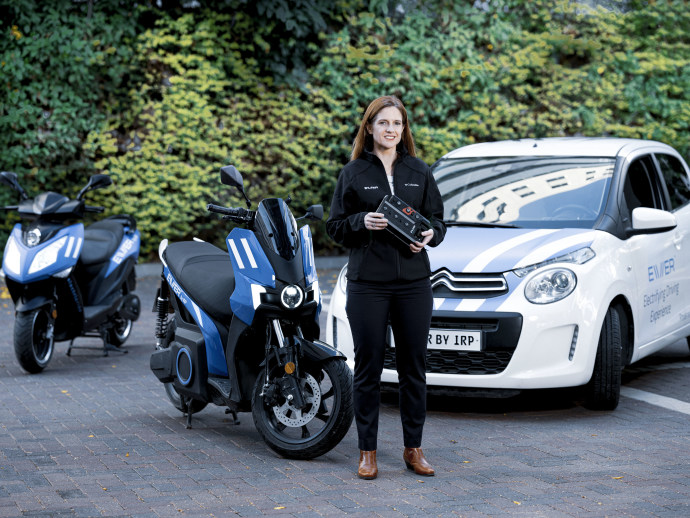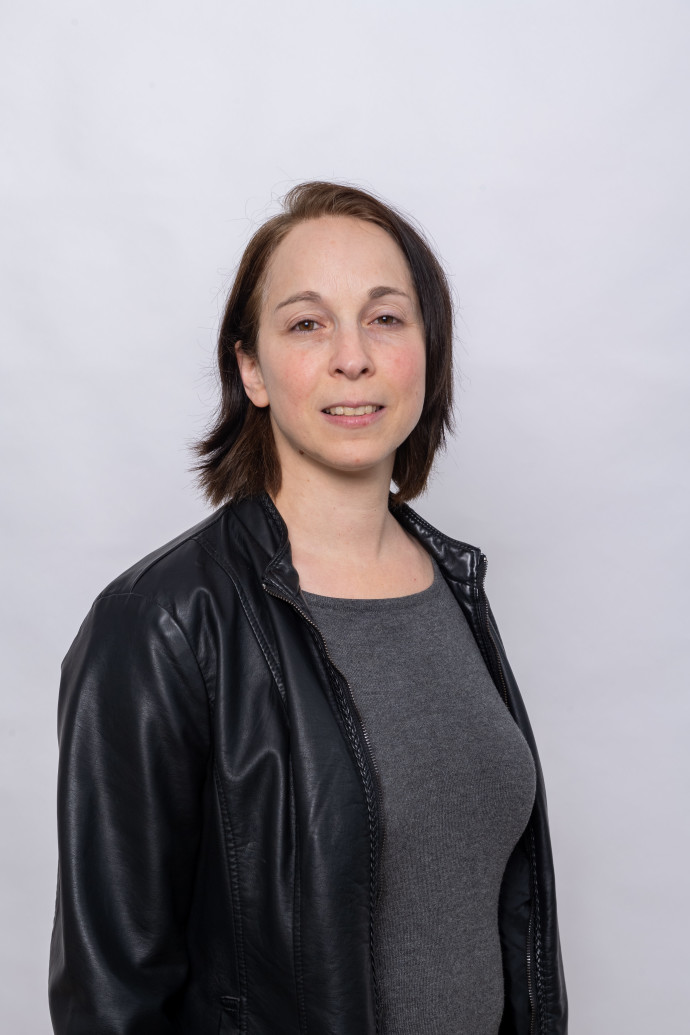‘We need more women in the world of innovation’

Tamar Luzzatto of The Luzzato Group points to the slow integration of women into the technology world, calling on them to register for the Next-Gen Women Entrepreneurship Award.
‘Data has shown that companies with women in key positions survive longer and raise more money. In today’s economy, gender equality is no longer a privilege. However, a global problem exists with women being less involved in the world of innovation. It is still a very male-dominated field, and in many ways the world of patents reflects this issue,” says attorney Tamar Luzzatto, who heads business development and marketing at The Luzzatto Group.
The Luzzatto Group is a sponsor and partner of the Next-Gen Women Entrepreneurship Award, which will be presented to a promising entrepreneur at the Jerusalem Post Women Leaders Summit on March 27 at the Carlton Tel Aviv Hotel.
“In recent years, the World Intellectual Property Organization (WIPO) has issued reports on gender inequality in the world of innovation,” explains Luzzatto. “The reports show an interesting trend. In the past two decades, the percentage of women’s participation in international patent applications (PCT) has risen, with a steep increase in the last five years. This seems like good news, but if we extrapolate the data the pace is so slow that we will not achieve equality until 2061.”
Luzzatto adds that an interesting finding from this research is that women participate more in mixed teams of men and women, unlike men, who work in male-only teams. “We learn from this that women are less likely to take a seat at the table or participate in female-only teams. At The Luzzatto Group, where 80% of the management are women, we understand the importance of promoting women, with the CEO, Dr. Esther Luzzatto, volunteering as chair of the Council for the Advancement of Women in Science and Technology.
“This is part of our agenda, and we are confident that we can make Israel a global leader in gender equality in innovation. This is because there is exceptional human capital here, alongside specific and unique opportunities for us. For example, there is an opportunity to integrate women as part of their relative share of the population in ‘male’ industries, such as cyber via the military, and we need to translate this potential into reality.
“We are focused on raising awareness about the benefits of intellectual property and explaining that it is not just a matter of ‘credit,’ but that intellectual property is a tool for business development. It is an asset that can promote women personally and professionally, and we must participate in this game. It is unacceptable that we are 50% of the population, yet this is not reflected in the data.”
The Next-Gen Women Competition, now in its third year, honors female entrepreneurs at the beginning of their journey, encouraging them to present and promote themselves and their projects. Luzzatto says that an event like this is precisely what the young generation of women in Israel needs to see.
“In the dry data on women’s participation in innovation, there are countries, even less advanced ones, that surpass us in certain parameters, such as Egypt and Mexico,” she points out.
“We need to talk about solutions, and the most accurate sentence in this context is ‘You can’t be what you don’t see.’ Young women need to see a role model with whom they can identify. We need to raise awareness, which means putting women on stage, whether in the Next-Gen Women Competition, which provides women with a platform to be a model for others, and in other ways.
“I can’t wait to see the amazing women we will meet in this year’s competition. We follow the winners and what they continue to do and support them as needed. I hope we can provide a platform for more leading women to take their place in the spotlight. We have quite a few leading women clients, and they have proven to us that the sky’s the limit.”
Global impact
One of the leading female clients of The Luzzatto Group, whose story is inspiring for the younger generation, is Moran Price, CEO and co-founder of IRP Systems. It is a global company that has spread across three continents, providing motor controllers for the automotive market, which serve as the “brain” of electric vehicles. With a bachelor’s degree in electronic engineering and an MBA, Price founded the company with her partner Paul, the company’s CTO, a mechanical and software engineer.
“We complement each other. We are parents to two children and full partners in life and work,” she says. Before founding the company, Price had an extensive history in the semiconductor industry at Intel, holding various roles in management, business development, and strategy. “The MBA pushed me into the entrepreneurial world and gave me the drive to do something that is mine,” she says. “When I moved from the corporate world to founding a startup, I believed I could have more influence. What we are doing today has a global effect. The market is huge, and our product helps clean pollution from cities.”
Although the automotive industry is perceived as male-dominated, Price emphasizes that this is not something she has experienced in her career. “Some of the strongest and leading figures in the global automotive industry who inspire me happen to be women,” notes Price. “I was looking for a place where I could influence the society I live in or the environment, looking for meaning. These are the things that guided me in my career.
“I never seek to prove myself just because I am a woman. I was raised to work hard and believe I can succeed in anything I want,” she says. Price adds that the main challenge she faced was entering the global automotive market as an Israeli company, an achievement of which she is particularly proud. “The only glass ceiling we encountered was entering the global automotive market as an Israeli company,” she says.
“Achieving this in the past two years is exciting and gratifying. “We managed to build a global team based on a common vision and DNA, and we succeeded in serving mass emerging markets and scaling together. This is something very special.”
Price relates that for aspiring entrepreneurs, one of the most important things, apart from their ability, is maintaining a particular mindset. “You must believe in what you are doing, believe that the world needs it, and be willing to fight for it. This industry is a roller coaster. There are many nos and many closed doors. But if your solution is better and solves a real market need, you will succeed.”
Chasing dreams
Another capable entrepreneur supported by The Luzzatto Group is Naama Eyal, CEO of Occipo Ltd., a medical device company. She holds bachelor’s and master’s degrees in physical therapy, with 20 years of experience, most of which were in child development, particularly with infants. The main focus of her master’s degree was on cranial deformation, which led to the establishment of Occipo Ltd.
“This has been my main focus for the past eight years. I wrote my thesis on cranial deformation in infants during the early months of development. I conducted clinical research on cranial deformation within the framework of child development in Israel’s North, and several years ago I opened the first clinic in Israel that deals exclusively with this issue.
“It is important to understand that this is a very common problem, though there is little awareness of it in Israel compared to other countries. A degree of understanding is required to diagnose it and to recognize that the unaesthetic appearance of a face or skull that we see in a child or adolescent often indicates a skull deformity that was ‘missed’ in infancy, which was not dealt with in the short window in which it could be treated.”
She adds, “Some researchers in the United States speak of a real epidemic. Recent studies have shown that almost every second baby suffers from some degree of cranial deformation in the first months. Usually, it is a mild case that will pass on its own, but often it requires intervention.
“It is also important to note that skull deformities have been linked to various developmental problems, so it is important not to treat them as just a ‘cosmetic’ issue but to understand that such a deformity tells us something important about the baby’s developmental abilities. The earlier we identify and treat the deformity with a comprehensive approach, the more we can help the baby in other areas.”
Eyal explains that helmets to repair the structure of the skull began to be imported to Israel only in recent years. She notes that although these helmets are clinically effective, they have quite a few problems and often cause discomfort to the baby due to their size, and affect the quality of life of the baby and the parents.
“I sensed the need for a change following years of daily treatments for babies suffering from skull deformities and dealing with frustrated parents. The therapeutic session in developmental physiotherapy is a personal and close encounter. It takes place on a mattress with the baby and his parents and lasts almost an hour.
“From these close encounters with thousands of babies with skull deformities, I felt that I had to take the energies of the parents, their worry, frustration, and fear of the future, and turn them into a better solution, which, beyond treating the structure of the skull bones will also take into account that there is a young baby who needs to develop properly. Both the child and the parents deserve an excellent quality of life.”
Eyal and her husband, Shai, a development engineer at Rafael, founded Occipo, which is developing a solution that provides the required clinical response to skull deformities but will not cause as much discomfort and burden to the parents.
“We are working with the support of the Israel Innovation Authority. We have established a capable international team of employees and consultants. We have completed a successful first financing round with Israeli and American investors and are now preparing for the first clinical trial in Israel,” says Eyal.
“We are in intensive stages of development after filing a patent in various countries. The goal is to provide babies worldwide with an innovative and smart solution that will dramatically save time and money that parents and clinics devote to treatment. We are attempting not only to properly treat existing deformities but to monitor and prevent the development of such deformities in advance.
“I think that a prerequisite for those who want to succeed in entrepreneurship is to have something burning in you. Even before the start-up was founded, cranial deformities in babies and their connections to the child’s general development consumed me. Also necessary is the support of the entrepreneur’s family. Creating a start-up requires sacrifice, and it requires your entire being.
“My message to a beginning entrepreneur is to build their skills and ensure they are professional in what they do. And most important – dream, and then run to make the dream come true.”
The Next-Gen Women Entrepreneurship competition, which will take place at the end of the month at the Jerusalem Post Women Leaders Summit, will present other leading and inspiring women like Eyal and Price, who are breaking through in their fields. To register for the competition and the opportunity to win the title, visit the following link: www.jpost.com/WLS24.
Translated by Alan Rosenbaum.
This article was written in cooperation with The Luzzatto Group.
Jerusalem Post Store
`; document.getElementById("linkPremium").innerHTML = cont; var divWithLink = document.getElementById("premium-link"); if (divWithLink !== null && divWithLink !== 'undefined') { divWithLink.style.border = "solid 1px #cb0f3e"; divWithLink.style.textAlign = "center"; divWithLink.style.marginBottom = "15px"; divWithLink.style.marginTop = "15px"; divWithLink.style.width = "100%"; divWithLink.style.backgroundColor = "#122952"; divWithLink.style.color = "#ffffff"; divWithLink.style.lineHeight = "1.5"; } } (function (v, i) { });



